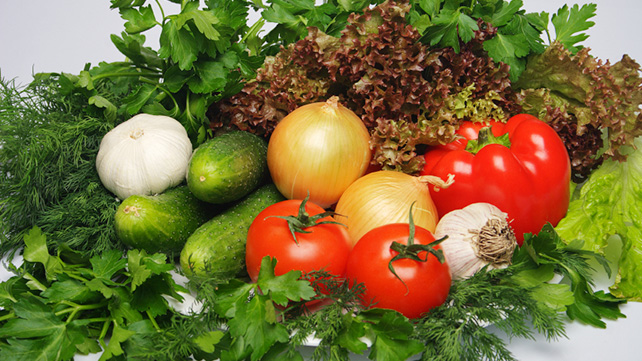 Vegetable juices have become big business these days, and
V8 is perhaps the best-known brand of vegetable juice. It’s portable,
comes in all sorts
Vegetable juices have become big business these days, and
V8 is perhaps the best-known brand of vegetable juice. It’s portable,
comes in all sorts of flavors, and is touted as being able to help you meet your daily vegetable quota. You’ve likely heard the brand’s slogan: “Could’ve had a V8,” but the question is, should you?
While it contains nutrients from all sorts of vegetables, V8 should not take the place of eating vegetables. Nutrients are lost and most of the fiber is removed during processing of vegetable juices like V8. They also have added components that are of questionable nutritional value.
Purported Benefits of V8
From soda to fruit-flavored juices, an array of clearly unhealthy drinks is available on the market. V8 is made from vegetables, and contains many of the same nutrients you’d find in whole vegetables. According to the company’s official website, V8 contains the juice of eight vegetables:- beets
- carrots
- celery
- lettuce
- parsley
- tomatoes
- spinach
- watercress
The Pitfalls of Vegetable Juice
Drinking V8 certainly isn’t as bad as drinking non-nutritive drinks like soda, but the juice may have some surprising drawbacks. The pureeing process used to juice the vegetables removes a large portion of their fiber content. Fiber, found in vegetables and other foods, is extremely important because it:- keeps you full
- prevents weight gain caused by overeating
- regulates blood sugar
- prevents constipation
- protects against heart disease
V8 is also reconstituted from concentrate, which means that the water was removed and then added back, so it’s technically not fresh vegetable juice. Also, there is no legal definition of “flavors” which is listed on the label.
As with other packaged foods, V8 uses salt to add flavor and preserve the juices. This can become problematic, especially if you are trying to manage your salt intake.
Another problem with V8 is its lack of variety in the original juice. It’s important to consume a variety of nutrient-dense vegetables, and to not have the same ones every day. Processed vegetable juices often skip out on other super veggies, such as broccoli and sweet potatoes.
Get Your Vegetables the Old-Fashioned Way
It can be easy to fall for the alluring convenience of V8 with increasingly hectic schedules. But despite its purported benefits, vegetable juice simply can’t beat vegetables in their whole form.That doesn’t mean that vegetables juice is bad for you. As long as your diet allows, you may drink an occasional serving of V8. The key is to avoid relying solely on juice to reach your daily vegetable servings.
Only drink vegetable juice that’s 100 percent juice and low in sodium. Aim to eat three to four different types of vegetables per day in order to reap the most nutritional benefits.

No comments:
Post a Comment